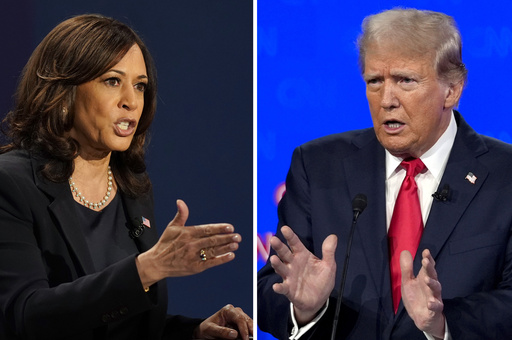Abortion has emerged as a more pressing concern than inflation among younger women voters under 30, particularly since Vice President Kamala Harris took the lead on the Democratic ticket alongside President Joe Biden. This shift in priorities was highlighted in a recent survey conducted by KFF, which showed that around 40% of young female voters now consider abortion their primary issue, a significant increase from only 20% in the spring survey.
In the previous poll conducted in May and June, inflation was the dominant concern among younger voters, reflecting the broader worries shared by women of all age groups. However, for women over 30, inflation continues to be the leading issue, while abortion ranks third across all women, coming in after inflation and threats to democracy, but ahead of immigration.
The KFF survey, conducted from September 12 to October 1, gathered responses from 678 female voters, with many participating in a previous round of polling earlier in the year. This latest survey aimed to ensure a robust sample by including additional Black women, reinforcing its demographic diversity. The margin of error for the findings was plus or minus 5 percentage points, with variations for specific voter groups.
Abortion has consistently been a significant topic, but the landscape changed dramatically in 2022 following the U.S. Supreme Court’s decision to overturn Roe v. Wade, a ruling facilitated by three justices appointed by Harris’ political opponent, Donald Trump. This decision has led many Republican-controlled states to implement strict abortion bans, with 13 states now prohibiting abortions at any stage of pregnancy, alongside four others instituting bans effective around six weeks into the pregnancy—often before many women realize they are pregnant.
Vice President Harris has actively focused on restoring abortion access as a central theme of her campaign. Young women who participated in the survey have taken note of this emphasis.
For example, Ally Zobel, a 19-year-old from Woodbridge, Virginia, identifies as a left-leaning independent voter preparing to cast her ballot for the first time. She highlighted reproductive health as her most critical concern and expressed appreciation for Harris’ push to reinstate abortion rights at a national level. Zobel voiced her worries about women facing severe health issues due to lack of access to abortions, emphasizing that carrying a pregnancy can be extremely challenging and that individuals should have the autonomy to decide if they want to continue a pregnancy.
Another participant, Sydney Wright, a 29-year-old stay-at-home mom from Effingham County, Illinois, indicated that the reversal of Roe v. Wade intensified her focus on restoring abortion rights. Although she has mixed feelings about Harris, the Vice President’s stance on abortion is a vital factor in her voting decision. Wright recounted stories of individuals traveling out of state to secure necessary health care and instances where doctors were unable to help patients in critical conditions due to legal restrictions.
This year’s elections could significantly influence the future of abortion access, with nine states presenting ballot measures aimed at constitutionally protecting the right to abortion. Furthermore, key races for Congress and statewide offices, including governors and state legislators, are likely to shape abortion policies in the future.
Overall, approximately two-thirds of women surveyed believe the upcoming elections will have a substantial impact on abortion access, an increase from just over half earlier this year. A significant number of women also expect that Donald Trump would sign a federal law banning abortions after the first 15 weeks if Congress were to pass such legislation. Towards the end of the survey period, Trump stated he would veto any abortion ban that reached his desk.
In contrast, many believe Harris would endorse a law guaranteeing nationwide access to abortion if passed by Congress. There is a pronounced partisan divide regarding which candidate is seen as more favorable for abortion access, with most women preferring Harris, including 90% of Democrats, while under 20% of Republican women share this sentiment. The same divides were observed in attitudes toward birth control and in vitro fertilization access.
Republican women are reportedly feeling somewhat less optimistic and more anxious compared to earlier in the year, whereas Democratic women have shown increased hopefulness and enthusiasm, despite a rise in their anxiety levels. Satisfaction levels with presidential candidates have risen significantly among Democratic women, going from just over one-third to three-quarters, while slightly more than half of GOP women remain content with their choices in candidates.
